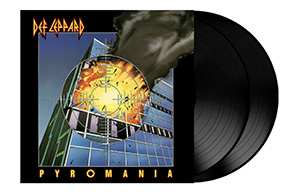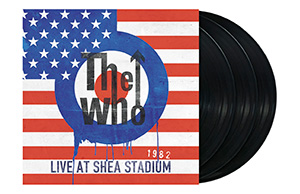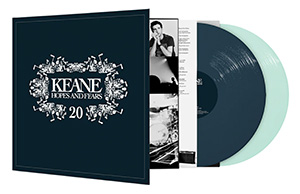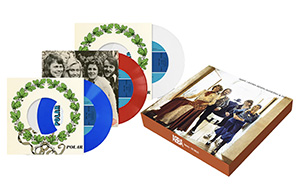Best Style Council Songs: 20 Genre-Straddling 80s Classics
Breaking away from The Jam’s punk-pop template, Paul Weller’s new group was wilfully eclectic as the best Style Council songs show.

It’s often said Paul Weller split The Jam at exactly the right time. When they finished at the end of 1982, the band went out at the very top, riding high with a U.K. chart-topping album, The Gift, and a No.1 single in “Beat Surrender,” while their final tour included five sold-out shows at London’s Wembley Arena. Yet, while The Jam was Britain’s biggest band at that point, Weller had tired of the constant album-followed-by-tour treadmill and was determined his next project, The Style Council, would be a complete break with the past.
Unlike The Jam – effectively a hermetically-sealed rock trio – The Style Council were all about looseness and flexibility. Ostensibly a duo of Weller and former Dexy’s Midnight Runners keyboard player Mick Talbot, drummer Steve White played on most of their recordings, while additional musicians were drafted in as required.
In stark contrast to the fierce, mod-inspired punk-pop sound The Jam perfected, The Style Council’s music could be wilfully eclectic and some of it even alienated Weller’s loyal fanbase. In retrospect, however, the band amassed a sizable collection of fantastic pop music during their six-year career and their catalog is now ripe for reappraisal.
Listen to the best Style Council songs on Apple Music and Spotify.
Broadening Horizons
(Speak Like A Child; The Paris Match; Have You Ever Had It Blue?; Fairy Tales; That Spiritual Feeling)
The Style Council established their collaborative approach from the off, with Weller and Talbot enlisting Orange Juice drummer Zeke Manyika and vocalist Tracie Young to perform with them on their debut single, “Speak Like A Child,” issued in 1983. A wonderful pop record driven by Weller’s funky bassline, Talbot’s classy Hammond organ, and a joyous chorus, the song cruised to No. 4 in the U.K. and sold over 350,000 copies, categorically proving there was life after The Jam for Paul Weller.
Encouraged by the success of The Style Council’s initial flurry of singles (with “Money-Go-Round” and “Long Hot Summer” following “Speak Like A Child” into the U.K. Top 20), Weller and Talbot adopted a similarly collaborative approach with their debut album, Café Bleu. The record included contributions from rapper Dizzy Hites, soul singer (and Weller’s future wife) Dee C. Lee, and the gloriously jazzy “The Paris Match,” featuring a smoky vocal from Everything But The Girl’s Tracey Thorn.
The jazz inflections of Café Bleu were largely absent from The Style Council’s second album, Our Favourite Shop, but Weller and Talbot later scored a Top 20 hit early in 1986 with another blissful, jazz-inflected track, the samba-flavored “Have You Ever Had It Blue?” The song was penned during the Café Bleu period but later made it onto the soundtrack of director Julien Temple’s film adaptation of author Colin MacInnes’ Absolute Beginners, featuring David Bowie, Patsy Kensit, and James Fox.
MacInnes’ book – a vivid portrayal of late 1950s London – was a favorite of Weller’s and he got to work with another of his primary influences the following year, when soul legend Curtis Mayfield mixed several tracks for The Style Council’s third album, The Cost Of Loving. Arguably the best of these, “Fairy Tales,” was a punchy slice of protest soul pepped up with stabs of Stax-style brass.
Weller and Talbot’s desire to broaden their horizons continued for the duration of The Style Council’s career, with Weller enthusiastically tuning into the burgeoning acid house scene during the late 80s. Unconvinced by their final album, 1989’s Modernism: A New Decade, Polydor refused to release it, but when it finally surfaced in 1998, tracks such as the blissful “That Spiritual Feeling” – featuring no less than James Brown’s backing band – showed the band had assimilated the contemporary sounds of house music into their sound and created a lost gem in the process.
Soul Survivors
(You’re The Best Thing; Shout It To The Top; My Ever Changing Moods; Heavens Above; How She Threw It All Away)
Even allowing for punk’s ‘Year Zero’ mentality, Paul Weller made no bones about his love of soul music right from the start, with The Jam tearing through breakneck live versions of Wilson Pickett’s “Sweet Soul Music” and The Supremes’ “Back In My Arms Again” in 1977.
If anything, his love of soul only intensified during The Style Council’s career. Curtis Mayfield, Stevie Wonder, and Marvin Gaye were among his primary listening pleasures when he launched the band, and soul and funk influences frequently bubbled to the surface on the best Style Council’s songs including the lush, soulful “You’re The Best Thing,” the strident, Philly soul-styled “Shout To The Top” and the celebratory “My Ever Changing Moods.”
A staple of Weller’s live set to this day, “My Ever Changing Moods” was a U.K. Top 10 smash, but it also peaked inside the U.S. Top 30, rewarding Weller with the biggest North American hit of his career. Weller and Talbot also looked to the U.S. when they were creating the band’s third album, The Cost Of Loving, where their brief was to create a modern American soul-sounding record in the vein of Jimmy Jam and Terry Lewis, renowned for their work with artists such as Janet Jackson and Alexander O’Neal.
Weller and Talbot realized their aim too, with The Cost Of Loving including the glossy Top 10 hit, “It Didn’t Matter” and the arguably superior, Marvin Gaye-esque “Heavens Above.” Their love of soul also carried over into their underrated fourth album, Confessions Of A Pop Group, a notably more downbeat affair and big on ballads, but also containing the buoyant, soul-tinged pop of “How She Threw It All Away.”
Mixing Pop And Politics
(Money Go Round; Walls Come Tumbling Down; The Lodgers; Internationalists; Life At A Top People’s Health Farm)
The Jam’s signature hits, “The Eton Rifles,” “Going Underground,” and “A Town Called Malice” demonstrated that Weller had developed into not only a singer-songwriter of some repute, but also one of the most vivid social commentators of the post-punk era.
However, while The Jam played benefit gigs for causes such as Rock Against Racism and CND (Campaign For Nuclear Disarmament), Weller – wary of the ‘voice of a generation’ tag the media repeatedly tried to foist on him – only became more directly involved with politics during The Style Council’s career.
There was a lot to be angry about in the U.K. during the mid-80s, not least the notorious Miners’ Strike and the divisive nature of Margaret Thatcher’s Conservative government. Accordingly, The Style Council were quick to make their feelings known with their second single, the funky, club-friendly hit “Money-Go-Round,” wherein Weller attacked the evils of capitalism and donated the royalties to Youth CND.
Much of the band’s output during the mid-80s reflected Weller’s support of the U.K.’s left-leaning Labour Party, with The Style Council becoming the standard-bearers of British protest pop with their second album, 1985’s Our Favourite Shop. A Top 10 hit and a jubilant call to arms, the album’s single, “Walls Come Tumbling Down” bristled with anger and energy while “The Lodgers” and the urgent, wah-wah guitar-driven “Internationalists,” laid into both Thatcher’s Conservative government, injustice, and greed in general with an intensity more redolent of Weller’s previous band.
Chiming with the times, Our Favourite Shop was a critical and commercial success, yielding The Style Council’s first (and last) U.K. No.1. In its wake, the band was at the heart of 1986’s Red Wedge U.K. tour, also featuring fellow pro-Labour artists such as Billy Bragg and The Communards. However, despite their best intentions, Thatcher’s Conservatives again swept to power in the U.K.’s 1987 general election, causing Weller and Talbot to distance themselves from politics, although 1988’s scornful, “Life At A Top People’s Health Farm,” showed they remained concerned about the state of the nation.
The Best Cuts Are The Deepest
(Headstart For Happiness; The Piccadilly Trail; Down In The Seine; A Man Of Great Promise; Changing Of The Guard)
Continuing the trend that saw classic songs such as “The Butterfly Collector” and “Tales Of The Riverbank” relegated to B-sides during The Jam’s career, fans of The Style Council often discovered Weller and Talbot’s most inspired cuts were either held over for album tracks or else tucked away on flipsides.
Originally released in stripped-back acoustic form on the reverse of “Money-Go-Round,” the optimistic “Headstart For Happiness” was revisited and given a definitive, full-band reading on the Council’s full-length debut, Café Bleu, with Weller, Talbot and Dee C. Lee sharing lead vocals. Later a staple of Weller’s live set when he embarked on his post-Council solo career, it features one of his most uplifting lyrics (“You can move a mountain/you just need the confidence”) and could easily have been a hit in its own right.
Another gem of a B-side, “The Piccadilly Trail” detailed images of loneliness and personal betrayal (“Can you ever explain your need to cause me pain?”) and it’s all the more powerful as the hurt in Weller’s voice is palpable despite the jaunty bossa nova beat and the sophistication of the song’s arrangement.
Also written from a personal perspective, Our Favourite Shop’s “A Man Of Great Promise” was Weller’s tribute to his old school friend and writer, Dave Waller, with whom Weller had set up the short-lived publishing house, Riot Stories Ltd. The company folded after Waller’s premature death in 1982, but his passing spurred Weller into writing a heartfelt eulogy, which still ranks among the very best Style Council songs.
To their credit, Weller and Talbot were even daring enough to pull off tracks as diverse as Jacques Brel-esque “Down In The Seine” and the resigned, string-kissed balladry of “Changing Of The Guard,” so it’s slightly ironic that while Weller is now (rightly) lauded for pushing the boundaries with his celebrated solo sets, Wake Up The Nation and the recent On Sunset, his underrated Style Council songs remind us he first embraced this sense of sonic adventure almost four decades back.
“The Style Council was totally liberating”, he told Record Collector magazine in 2018. “It felt like the right time to do it, and I was at the right age.”
Wasn’t he just?
The Style Council new, career-spanning anthology set, Long Hot Summers can be bought here.











Artie Sakho
February 18, 2021 at 12:02 am
Excellent summing up of a body of work that’s too often forgotten now. Just one irritation – it’s the Labour Party, not ‘Labor’. It’s UK politics so the UK spelling is the correct option.
Todd Burns
March 1, 2021 at 6:39 pm
Glad you enjoyed the read, Artie! That’s a great point about the spelling. We’ve fixed it now!